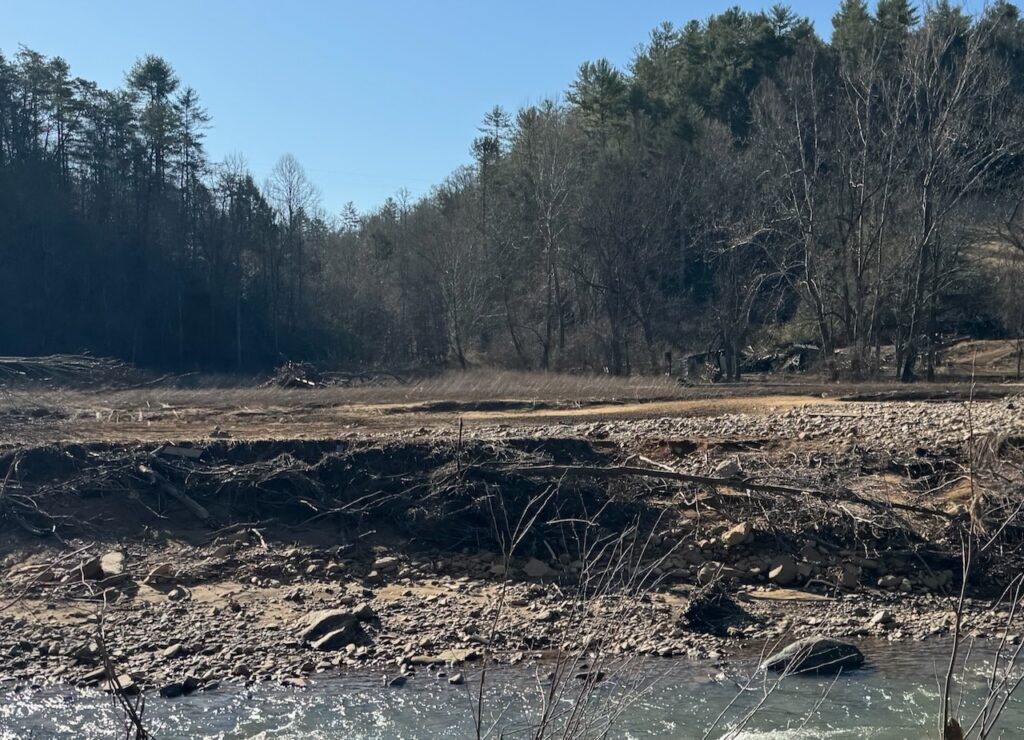2025 Agricultural Disaster Crop Loss Program – Apply before May 4!
go.ncsu.edu/readext?1063812
en Español / em Português
El inglés es el idioma de control de esta página. En la medida en que haya algún conflicto entre la traducción al inglés y la traducción, el inglés prevalece.
Al hacer clic en el enlace de traducción se activa un servicio de traducción gratuito para convertir la página al español. Al igual que con cualquier traducción por Internet, la conversión no es sensible al contexto y puede que no traduzca el texto en su significado original. NC State Extension no garantiza la exactitud del texto traducido. Por favor, tenga en cuenta que algunas aplicaciones y/o servicios pueden no funcionar como se espera cuando se traducen.
Português
Inglês é o idioma de controle desta página. Na medida que haja algum conflito entre o texto original em Inglês e a tradução, o Inglês prevalece.
Ao clicar no link de tradução, um serviço gratuito de tradução será ativado para converter a página para o Português. Como em qualquer tradução pela internet, a conversão não é sensivel ao contexto e pode não ocorrer a tradução para o significado orginal. O serviço de Extensão da Carolina do Norte (NC State Extension) não garante a exatidão do texto traduzido. Por favor, observe que algumas funções ou serviços podem não funcionar como esperado após a tradução.
English
English is the controlling language of this page. To the extent there is any conflict between the English text and the translation, English controls.
Clicking on the translation link activates a free translation service to convert the page to Spanish. As with any Internet translation, the conversion is not context-sensitive and may not translate the text to its original meaning. NC State Extension does not guarantee the accuracy of the translated text. Please note that some applications and/or services may not function as expected when translated.
Collapse ▲In late March, North Carolina’s Governor Stein and the General Assembly authorized funding through the Disaster Recovery Act of 2025 to help producers recoup crop losses from Hurricane Helene and other agricultural disasters that occurred in 2024. The aim of this program is to offer aid to farms that suffered losses not covered through traditional crop loss programs.
This funding program will be administered through the NC Department of Agriculture’s Agricultural Disaster Crop Loss Program, with allocations of $200 million for verifiable losses from Hurricane Helene and $100 million for verifiable losses from all other Secretarial-declared agricultural disasters in 2024 including drought, Tropical Storm Debby and Potential Tropical Cyclone 8.
Eligibility
You may apply for funding if you meet the following requirements:
- A person who experienced a verifiable loss of agriculture or aquaculture commodities or farm infrastructure as a result of a Presidential or Secretarial declared disaster in 2024.
- The farm is located in an affected area for the respective agricultural disaster.
- The commodity or aquaculture was planted or being raised before the date of the disaster set forth in the Presidential or Secretarial declaration for the county in which the agricultural or aquaculture commodities or farm infrastructure are located and for which verifiable losses are claimed.
How to Apply
The funding application is now OPEN, and applications must be submitted by the May 4, 2025 deadline. Producers of nursery crops, fruit-bearing trees and bushes, and specialty crops (perennial cut flowers, medicinal herbs, etc) where survival levels are not immediately known, may request an extension of their deadline another 45 days to June 18, 2025. This request must be received in writing to agdisaster@ncagr.gov
There are two applications to choose from – the Hurricane Helene Verifiable Ag Disaster Crop Loss and the Non-Helene Verifiable Ag Disaster Crop Loss. In rare cases, if a farm suffered losses due to both Helene and another ag disaster, two applications may be submitted. However the intent is for farms to only apply for one of the funding program options. Both applications, as well as a SAMPLE application can be accessed through https://www.ncagr.gov/agdisaster and local Extension personnel can assist producers in applying if needed.
Two supplemental documents are required when applying for this program:
- A completed NC Sub W-9 for the producer SSN/EIN
- A copy of the Farm Service Agency’s Producer 2024 Form, FSA 578 from their local USDA-FSA office. If you do not have a FSA 578 already on file for the 2024 crop year, local FSA offices can assist with creation of a Non-Certified 2024 578 crop report for the purpose of the program. You must first have a Farm ID number on file with the FSA before completing the FSA 578 form.
What are the steps for completing the FSA 578 Form?
To expedite the process of working with FSA to acquire the FSA 578 paperwork, producers will need a record of their 2024 crops lost, the planting dates of these crops, the intended use of these crops (whether for seed, fresh consumption, dried products, etc.), the square footage or acreage of the crops, and specific varieties. This information can usually be accessed fairly easily from crop planting schedules or other farm records, and farm records that contain this information can be submitted to FSA as supplemental documentation if needed. Any bonafide farm demonstrating commercial sales from agricultural products of at least $1000/year, no matter the size of the operation, can report crop loss on the Producer Form, FSA 578.
The Buncombe & Madison County Farm Service Agency maintains offices in each county. The Asheville Service Center is only staffed on Wednesdays, and it is recommended that producers make an appointment in advance by calling the Asheville office at 828/254-0916 or the Madison County office at 828/649-2712 on other weekdays.





